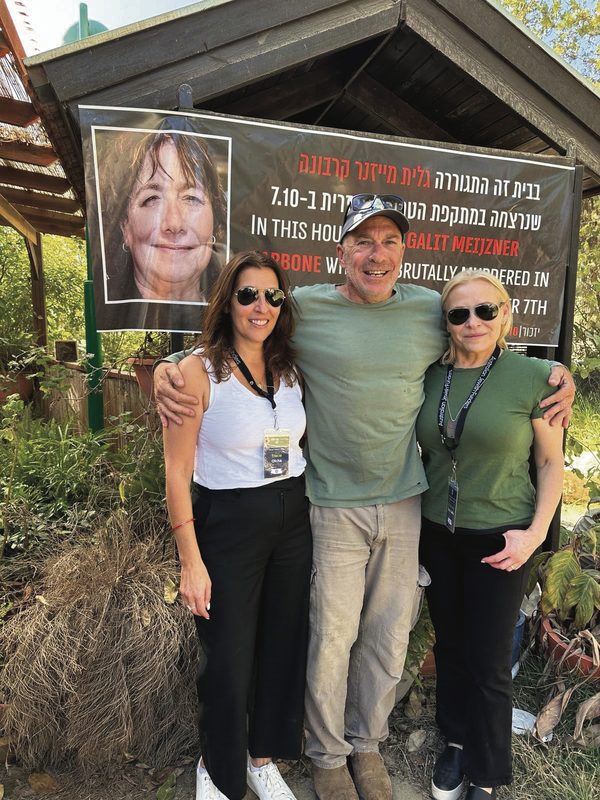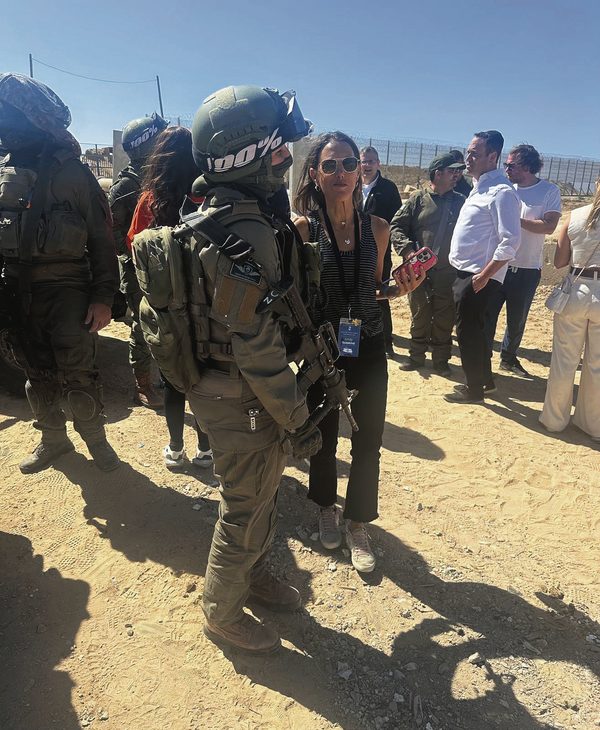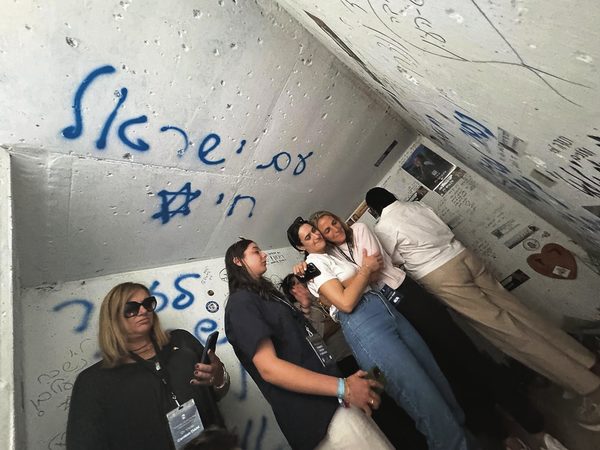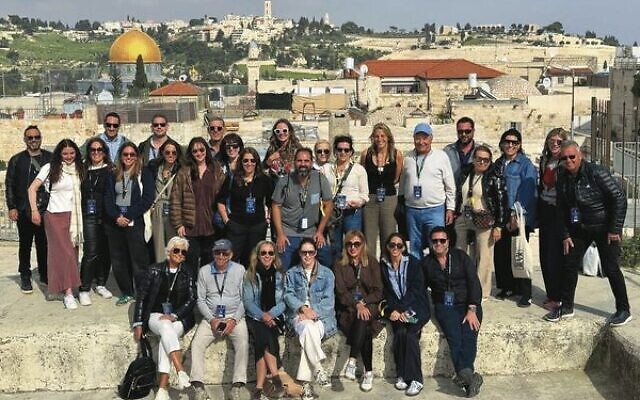‘How will you show up for Israel?’
“All we can do is be more mindful about how we show up – and the role of philanthropy can be very profound,” says Tracie Olcha.
In ensuring Israelis that the Jewish world has their back after October 7, each Jewish individual in the Diaspora needs to ask “How do I show up in this moment?”
That’s Tracie Olcha’s deeply held conviction. The CEO of Australian Jewish Funders (AJF) has returned from a March 10-15 mission to Israel with 27 Australian philanthropists, each seeking their moment to make a difference.
“All we can do is be more mindful about how we show up – and the role of philanthropy can be very profound,” she told The AJN. “We’re all asking ourselves the same question: ‘How do I want to show up in this moment?’ Right now, we’re living a very big part of Jewish history and in the future, each one of us will want to look back and say, ‘In that moment of crisis in Israel and in the Diaspora, how did I react?’”
Over six intensive days, the AJF team met survivors, bereaved, IDF reservists, homeless kibbutzniks and their Israeli philanthropic counterparts. They set their goals: support hostages, soldiers and reservists, and displaced civilians. Help treat trauma. Aid the economy.

The Australians discussed the overwhelming questions facing Israelis six months after the barbaric Hamas attacks. And they marvelled at Israelis’ resilience.
The visitors were shown the Nova festival killing fields. They were taken through the remains of Kibbutz Be’eri by Olcha’s cousin, Danny Majzner, whose sister Galit Carbone of Be’eri, an Israeli-Australian dual national, was killed on October 7.
“One of the points made was that after the Holocaust, Jews didn’t build back in Auschwitz,” said Olcha. “But communities in the south want to go back and live in their homes. Yet how do you reimagine Kibbutz Be’eri?”

The group witnessed the massive effort to transfer hundreds of thousands of displaced people, now dazed hotel dwellers, to longer-term homes. Families of Kibbutz Re’im, for example, have been reunited in two high-rise buildings, a “vertical kibbutz”.
The Australians spoke to uprooted residents from the north, who can’t go home while Hezbollah rockets fly and a new war front threatens.
They met Rabbi Doron Perez, at the time still hopeful his son Daniel, missing since October 7, would be found alive. Three days later, Daniel’s murder was tragically confirmed from captured Hamas bodycam footage.
A panel of three philanthropic families comprising mothers and daughters brainstormed how they pivoted in their giving after October 7. Members of the mission studied family foundations, social finance and advocacy.

“We want to inspire people to be strategic with their philanthropy, as impactful as possible. One of the lessons we learned was ‘know your lane’. For example, if you’re already working in trauma, go deep, because we need that expertise,” said Olcha.
The AJF is coordinating with not-for-profits, such as the Israel Women’s Network and its lifeline for October 7 victims of sexual atrocities.
In spite of their own dire needs, Olcha found Israelis feeling heartache for Australia’s Jewish community. Meeting President Isaac Herzog, his first question to the visitors had been about Jewish Australians and the upsurge of Jew hatred in Australia. Israelis, she said, “are extremely conscious through social media and through family connections”.
Contact Tracie Olcha: tracie@ajf.org.au


comments